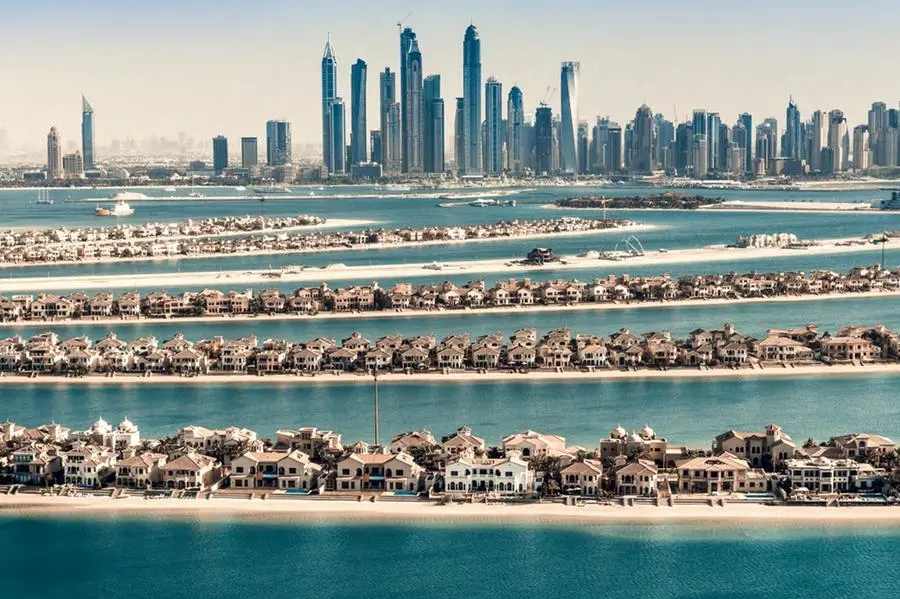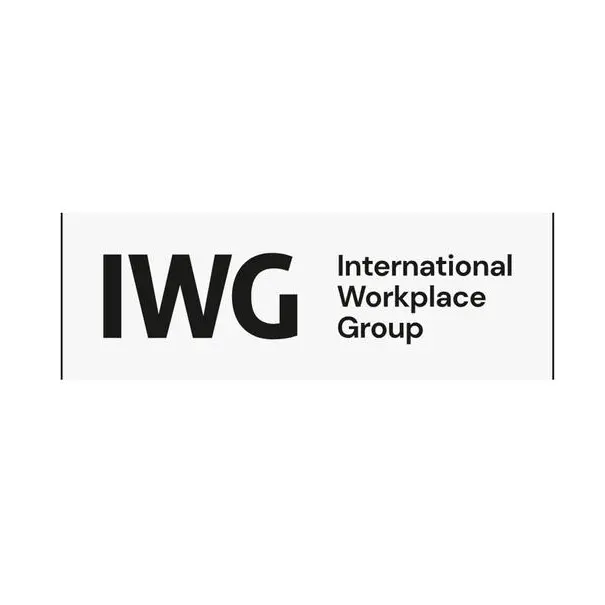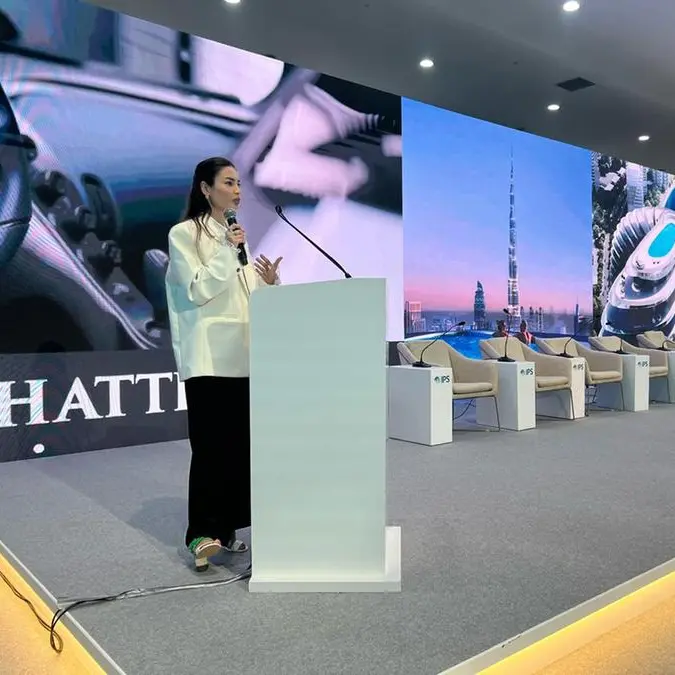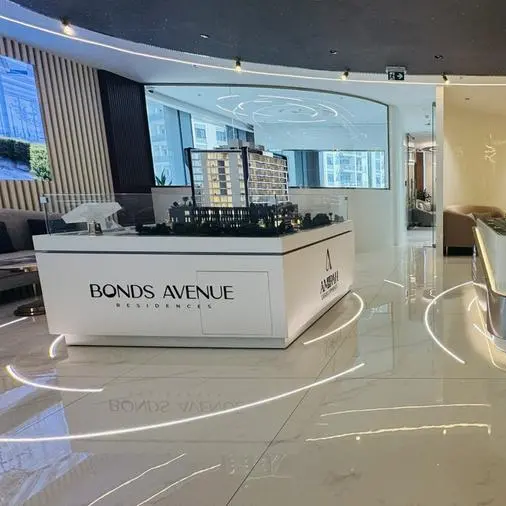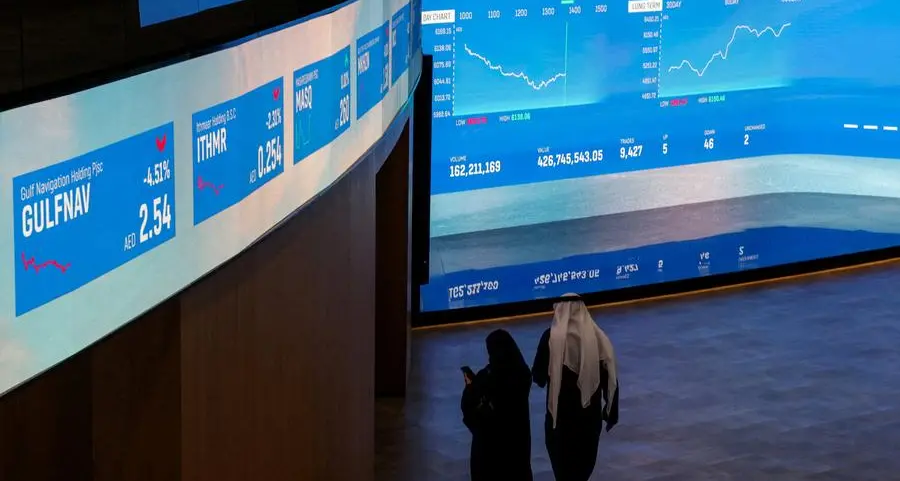PHOTO
- Warehouse rentals see an increase; e-commerce, 3PL players, oil and gas industry, and manufacturing sector to drive the UAE’s industrial sector this year
- Over 370,000 sq. m. of retail space delivered in Abu Dhabi and Dubai during 2023; Average increase of 5% in rents for both primary and secondary malls in both cities in Q4 2023
- More than 36,000 units, majority apartments, were delivered in Dubai, and over 5,000 were completed in Abu Dhabi continuing the positive momentum in the UAE’s residential sector; developers to prepare for an increase in land prices and construction costs
- 5,000 keys added in Dubai resulting in a total stock of 153,000 keys whereas 200 keys bring the total stock to over 32,500 keys in Abu Dhabi. New tourism destinations and entertainment concepts to serve as catalysts for the growth of the hospitality sector in 2024
Dubai, United Arab Emirates – As the UAE continued to demonstrate resilience in the face of challenging global economic conditions, the real estate sector witnessed robust growth across all the major asset classes in 2023, revealed JLL’s ‘A Year in Review’ UAE report.
Faraz Ahmed, Research Director at JLL MENA, said: “Throughout 2023, the UAE’s real estate industry remained a top performer, particularly the office and residential sectors where there was a substantial increase in stock driven by strong demand. With the government focused on strengthening and diversifying the country’s economy, real estate will continue to be a key driver owing to the robust demand and favourable investment climate in the country.”
Rising demand for quality office space to spur development of new projects in 2024
New market entrants as well as existing businesses looking to expand their presence in the country are contributing to the growth of the office sector with commercial real estate developers capitalising on the increasing demand through new projects. Certain free zones in the UAE have also taken proactive measures to expand their jurisdiction or launch new projects within their zones.
The delivery of approximately 92,000 sq. m. of gross leasable area (GLA) in Dubai, majority consisting of Grade A specifications, resulted in the total stock increasing to 9.2 million sq. m. An additional 44,000 sq. m. is scheduled to be added this year. While the total stock in the capital remained unchanged at 3.9 million sq. m. in 2023, Abu Dhabi is expected to introduce approximately 112,000 sq. m. of new office space in 2024.
In Q4 2023, a 15% year-on-year (Y-o-Y) increase elevated average Grade A rents within Dubai’s Central Business District (CBD) to AED 2,425 per sq. m. per annum, setting a new market record, which surpassed the previous high of 2016 by nearly 6%. Leasing activity also picked up, resulting in a reduction of office vacancies within the CBD to 8%. In Abu Dhabi, the robust demand continued to drive an impressive 12% Y-o-Y growth in average city-wide Grade A rents, amounting to AED 2,000 per sq. m. per annum. Over the same period, the city-wide vacancy rate marginally decreased to 22% in the capital.
The market remained firmly in favour of landlords due to high rents and the limited availability of quality space and rising enquiries from occupiers. Consequently, tenants were compelled to reassess their requirements and extend their search to secondary and tertiary areas that potentially offered lower-quality stock.
Strong demand for high-quality logistics and warehousing solutions stimulating the industrial sector
In line with its economic diversification efforts, the UAE’s industrial sector is witnessing strong demand from international occupiers who seek superior quality of their industrial facilities and proximity to the air and seaports.
While established onshore areas like Al Quoz, Al Qusais, and Ras Al Khor in Dubai continued to dominate the market, remaining popular and commanding higher rents and occupancy rates, new industrial areas such as Dubai Investment Park (DIP) and Dubai Industrial City (DIC) are rapidly gaining prominence. Warehouse rentals saw an increase across most of the industrial areas in Q4 2023 with JAFZA, Jebel Ali Industrial Area, and DIC standing out with significant Y-o-Y increases of 20%, 19%, and 17%, respectively. The robust occupier market is being fuelled by various government initiatives that support the growth of the logistics and e-commerce sectors.
In Abu Dhabi, majority of the stock is situated outside the city centre in areas such as Musaffah, KEZAD, and Abu Dhabi Industrial City. Driven by a surge in demand, warehouse rents rose in Musaffah and Markaz by 32% and 12% Y-o-Y, respectively.
The outlook for the industrial market remains optimistic, with steady leasing activity expected to persist throughout 2024. Key drivers of this activity are anticipated to include e-commerce, 3PL players, the oil and gas industry, and the manufacturing sector.
Experiential concepts driving the growth of the UAE’s retail sector
In 2023, the retail sector saw mall operators adopt a more dynamic management strategy while landlords focused on enhancing the customer experience to increase dwell time by leveraging experiential retail through food and beverage (F&B) offerings and the transformation of common spaces. New distinctive concepts including TeamLab Phenomena are expected to debut in the capital in 2024, whereas Dubai has seen a focus on reoptimising retail assets to align with evolving technology and e-commerce trends.
Approximately 123,000 sq. m. of retail space was added in Dubai during 2023 bringing the total retail stock in the emirate to 4.8 million sq. m. The majority of this growth resulted from the expansion of an existing super regional mall. In the capital, during the same period, around 250,000 sq. m. of retail GLA came online, increasing the total stock to 3.15 million sq. m. In 2024, an additional 160,000 sq. m. of retail space is anticipated to enter Dubai, while Abu Dhabi is expected to introduce around 19,000 sq. m. of new retail GLA.
In the last quarter of 2023, there was an average increase of 5% in average rents for both primary and secondary malls in both cities. Additionally, robust leasing activity contributed to a reduction in vacancy rates, bringing the rate down to 16% in Dubai. In Abu Dhabi, the city-wide vacancy rate stood at 22% due to the addition of new retail stock throughout the year.
Robust performance of the residential sector anticipated to continue in 2024
Benefitting from strong demand and continued developer activity, the UAE’s residential sector witnessed remarkable growth in transactions in both primary and secondary markets in 2023. Dubai witnessed a 51% Y-o-Y increase in value and a 43% Y-o-Y increase in volume for the period from January to November 2023, according to data from Dubai Pulse. In Abu Dhabi, successful launches in the off-plan segment contributed to a significant rise in total transaction values, which surged by 102% annually, and a 77% Y-o-Y increase in volume compared to the same period last year.
The capital experienced consistent growth throughout the year with a 5% increase in sale prices and a 2% rise in rental rates on an annual basis in Q4 2023. In Dubai, both average sales prices and rental rates saw significant increases of 19% in November 2023 compared to the same period in the previous year. Notably, Dubai’s average villa sale prices continued their upward trajectory, driven by heightened demand, and reached a new all-time high by November, surpassing the previous peak of 2014 by 15%.
Over the course of the year, more than 36,000 units were delivered in Dubai, with apartments comprising the majority, raising the total stock to over 719,000 units. In the capital, over 5,000 units were completed, resulting in a total completed stock of over 284,000 units. In 2024, approximately 34,000 units are scheduled to be delivered in Dubai, while around 8,000 units are anticipated in Abu Dhabi.
The positive momentum of the UAE’s residential market is expected to continue in 2024. However, developers will need to be prepared to incorporate the rise in land prices and construction costs, thus perpetuating the trend of smaller unit sizes and launches in secondary areas.
Sustained growth in the hospitality sector driven by well-balanced calendar of events
The hospitality sector maintained positive momentum throughout the year, supported by a well-balanced calendar of events. Interestingly, operators responded to the decrease in high-spending traffic by implementing smarter revenue management strategies to capitalise on the changing business mix.
In 2023, approximately 5,000 keys were added in Dubai, with a majority representing 5-star properties, bringing the total stock to 153,000 keys. As for Abu Dhabi, the addition of 200 keys led to a total stock surpassing 32,500 keys. Dubai has approximately 7,000 keys scheduled for delivery, while Abu Dhabi is expecting around 700 keys to be added to its inventory.
City-wide occupancy in Dubai reached 77% whereas Abu Dhabi sustained robust occupancy levels of 72% for the year-to-date (YT) period of November 2023. Although there was a decrease of 2% in average daily rates (ADR) in Dubai, resulting in an ADR of USD 179, the overall increase in tourist arrivals contributed to maintaining a healthy revenue per available room (RevPAR) of USD 138. In the capital, ADR reached USD 143, marking a notable increase of 20% compared to the same period last year. Moreover, RevPAR experienced a significant annual improvement of 25%, reaching USD 103. The ongoing development of new tourism destinations such as Saadiyat and Yas Island, combined with the introduction of new entertainment concepts, will serve as positive catalysts for the hospitality sector and is anticipated to contribute to long-term growth in the capital.
About JLL
For over 200 years, JLL (NYSE: JLL), a leading global commercial real estate and investment management company, has helped clients buy, build, occupy, manage and invest in a variety of commercial, industrial, hotel, residential and retail properties. A Fortune 500 company with annual revenue of $20.9 billion and operations in over 80 countries around the world, our more than 103,000 employees bring the power of a global platform combined with local expertise. Driven by our purpose to shape the future of real estate for a better world, we help our clients, people and communities SEE A BRIGHTER WAYSM. JLL is the brand name, and a registered trademark, of Jones Lang LaSalle Incorporated. For further information, visit jll.com
About JLL MEA
Across the Middle East and Africa (MEA) JLL is a leading player in the real estate and hospitality services markets. The firm has worked in 35 countries across the region and employs over 1650 internationally qualified professionals across its offices in Dubai, Abu Dhabi, Riyadh, Jeddah, Al Khobar, Cairo, Casablanca, Johannesburg and Nairobi. For further information, visit jll-mena.com
Media Contact:
Medha Sandrasagara
JLL MEA
Medha.Sandrasagara@jll.com
Nisha Celina | Atrayee Roy Choudhury
ASDA’A BCW
nisha.celina@bcw-global.com | atrayee.choudhury@bcw-global.com
